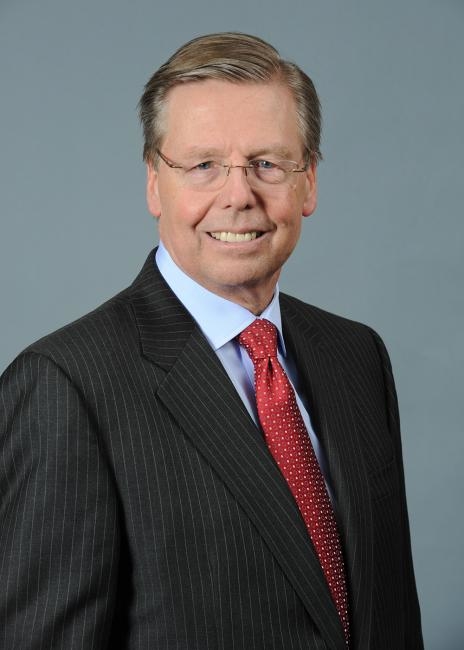As head of CareFirst BlueCross BlueShield, one of the largest insurers in the Mid-Atlantic, Chet Burrell is counting the days to his retirement.
But as he leaves, he's not counting out the future of CareFirst's participation in the ACA marketplaces—at least for now.
CareFirst plans to stay in the ACA insurance exchanges despite “dramatic losses" as it examines state-level efforts to stabilize the markets, Burrell said in an interview with FierceHealthcare on Wednesday. The vocal opponent of efforts to roll back elements of the ACA will retire as head of the company at the end of the week.
CareFirst provides insurance in the Maryland, Washington, D.C., and Virginia area.
CareFirst worked very hard to get legislation passed in Maryland to help stabilize the market, he said. Maryland passed a law earlier this year to create a state reinsurance program and use federal reinsurance waivers to limit the growth of health plan premiums. The legislation was aimed at stabilizing health plan premium increases, which were driving healthier people out of the markets, Burrell said.

The reinsurance program will use state and federal reinsurance funding to pay catastrophic claims for members enrolled in Maryland Health Benefit Exchange plans.
RELATED: State experiments with restoring the individual mandate include a health plan ‘down payment’
With the hope the law will flatten rates, Burrell said, CareFirst has no plans to get out of the markets. The company has filed 2019 rates for its plans.
“You take it one year at a time,” he said about future participation in the ACA exchanges.
Burrell also weighed in on one of the latest insurance players making headlines recently: The new venture formed by Amazon, Berkshire Hathaway and JPMorgan. First announced in January, the three major companies teamed up to create a healthcare venture that could leverage their combined resources to create health solutions to benefit their U.S. workforces and eventually, all Americans. They’ve also hired Atul Gawande, M.D., a New York Times bestselling author and high-profile surgeon at Brigham and Women's Hospital in Boston, as the company CEO.
“We’re very curious about what they think they can do,” Burrell said. “What exactly are they going to do differently?”
For instance, when people are really sick they need certain services, whether it be imaging tests or medications, he said, which creates costs. It is hard to envision what a new venture can do differently to contain those kinds of costs, he said.
Frequently, people outside of healthcare come in and think they can solve problems. But it’s not so easy to come up with solutions to complex problems, he said. It’s too soon to know whether the new venture will change the traditional health insurance industry. Whether the new company can find a way to give better care to people at lower cost remains to be seen, he said: “I don’t think we see it as a threat.”